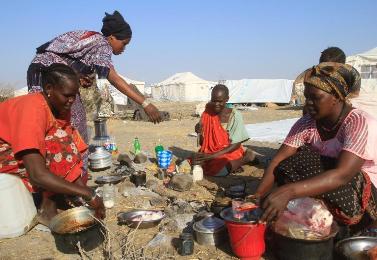Sudan stops open-door policy to South Sudanese
March 17, 2016 (KHARTOUM) – The Sudanese government Thursday decided to put an end to its open door policy for South Sudanese nationals fleeing the armed conflict in the neighbouring country and decided to treat them as foreigners.

The Sudanese government also decided to take all the necessary measures to establish and verify the identity of the South Sudanese nationals. Further it was decided to take legal measures against anyone who does not carry a passport and a visa.
When an armed conflict broke out in South Sudan, the Sudanese government refused to give the South Sudanese nationals the refugees status or to establish camps for them saying they are free to enter, reside and work in their former country and to receive health and education services.
The decision, at the time, was politically motivated and in harmony with Khartoum’ policy hostile to the presence of foreign aid groups the establishment of refugee camps.
But very quickly, the Sudanese authorities to relocate the South Sudanese outside the capital Khartoum to the While Nile state near the border.
In line with the Cooperation Agreement of September 2012, Sudanese and South Sudanese can live and work in the two countries. But the protocol of the four freedoms is not yet implemented, and the South Sudanese nationals should also wait to get their identity documents from their government.
There are nearly 200,000 South refugees in Sudan following the eruption of conflict in South Sudan in December 2013. In addition there are some 300,000 who continue to reside in Sudan since the independence in 2011.
(ST)
